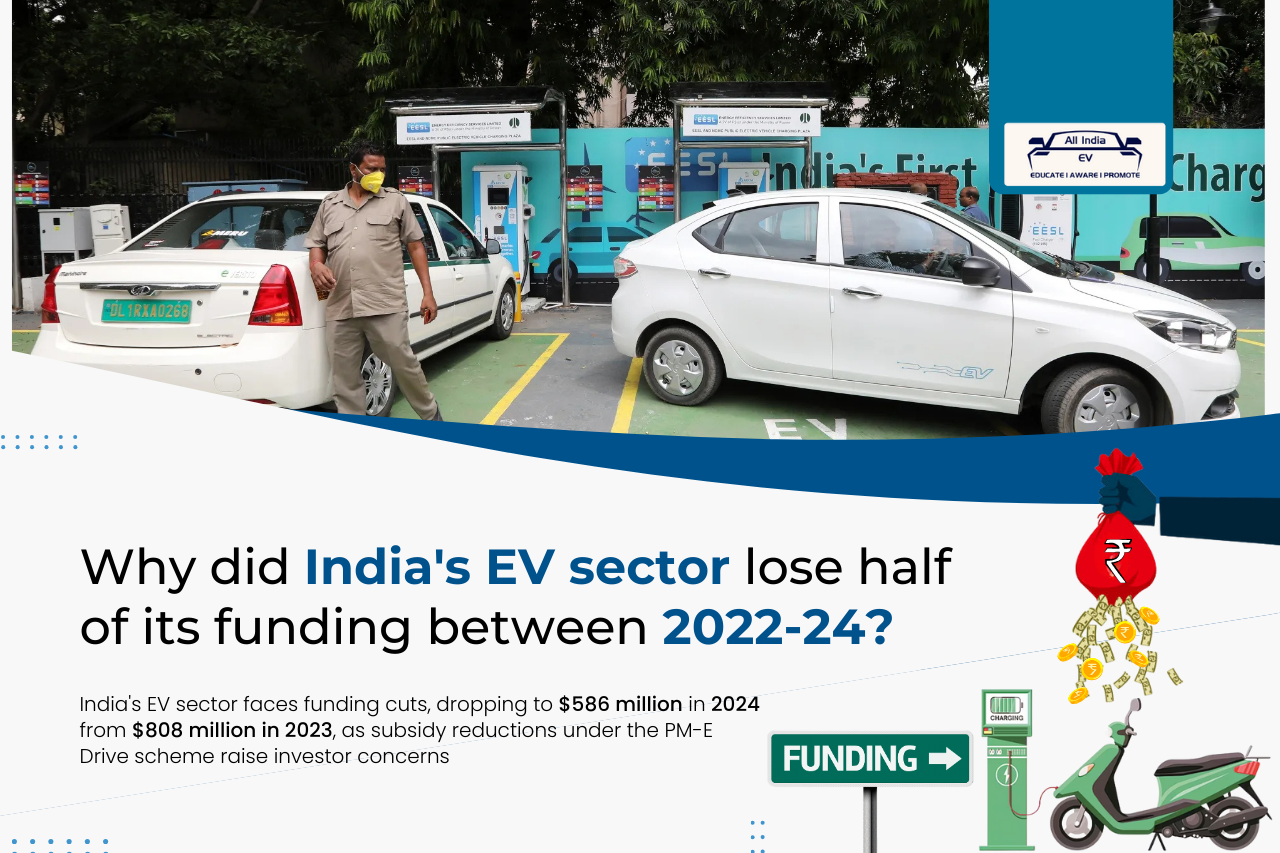
India’s EV Sector: A Funding Winter Sets In
New Delhi: The Indian electric vehicle (EV) sector, once a beacon of hope for sustainable mobility, is facing a chilling reality: a sharp decline in funding. Investment in this burgeoning sector plummeted from $934 million in 2022 to a mere $586 million in 2024, marking a significant 37% drop, according to a report by The Economic Times citing Venture Intelligence data. While the number of deals remained relatively stable at 44, the drastic reduction in funding underscores a growing apprehension among investors.
Policy Shift and Slower Sales: A Double Whammy
This downturn can be attributed to a confluence of factors. The government’s decision to scale back subsidies under the PM-E Drive scheme has significantly impacted investor sentiment. This scheme, designed to incentivize EV adoption, offers a fixed subsidy of Rs 5,000 per kilowatt-hour (kWh) in the first year, capped at Rs 10,000. This pales in comparison to the previous FAME-II scheme, which offered peak incentives of Rs 15,000 per kWh, covering up to 40% of a vehicle’s cost. The reduction in government support has understandably raised concerns among investors, who are now demanding a more sustainable and profitable environment for their investments in the EV sector.
Furthermore, the slowdown in EV sales growth has added to the investor anxiety. While over 1.9 million EVs were sold in 2024, marking a 24.5% increase from the previous year, this growth rate is significantly lower than the robust 50% growth observed in earlier years. This deceleration in sales has prompted investors to prioritize unit economics and profitability over aggressive expansion.
Navigating the Storm: High-Profile Investments and Emerging Opportunities
Despite the challenging funding environment, the sector has witnessed some high-profile investments. Ather Energy, for instance, secured $71 million from the National Investment and Infrastructure Fund (NIIF), propelling it into the unicorn club and setting the stage for an upcoming IPO. Such deals, however, are becoming increasingly rare as investors adopt a more cautious approach.
While the immediate future may seem uncertain, the long-term vision for India’s EV sector remains optimistic. The government’s target of 30% EV penetration in new vehicle registrations by 2030 continues to drive long-term optimism. Furthermore, emerging areas like battery swapping, charging infrastructure, and component manufacturing are attracting significant attention and investment. Battery swapping, in particular, is gaining traction, with companies like Battery Smart leading the charge with over 55 million swaps conducted in 2024.
The Road Ahead: A Call for Collaboration and Innovation
The current challenges facing the Indian EV sector underscore the need for a collaborative approach between the government, industry, and investors. A comprehensive policy framework that addresses the concerns of all stakeholders is crucial to ensure the sustainable growth of this vital sector. This framework should focus on fostering innovation, promoting private sector investment, and creating a conducive environment for the development of a robust domestic EV ecosystem.









